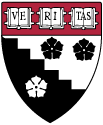Best of both worlds: Issues of structure and agency in computational creation, in and out of school
I recently received a suggestion to share my MIT dissertation with the ScratchEd community.
From the dissertation abstract:
We live in a computational culture – a culture in which we are surrounded by computational systems and interfaces, from social networks to banking infrastructure, to entertainment platforms, to transportation systems. This culture introduces new expectations and new opportunities for learning, creating new demands for what to learn and offering new possibilities for how to learn.
In this dissertation, I adopt a predominantly qualitative approach to exploring learning in computational culture, studying how the Scratch programming environment and online community are employed to support learning both in and out of school. To this end, I conducted interviews with 30 kids working with Scratch at home and 30 teachers working with Scratch in K-12 classrooms to develop descriptions of computational creation in these two settings.
Using a theoretical framework of agency and structure, I analyze how the at-home and school-classroom contexts enable – or constrain – young people’s agency in computational creation. Despite common assumptions that at-home learning is necessarily low-structure/high-agency and that at-school learning is necessarily high-structure/low-agency, I argue that structure and agency need not be in opposition. Designers of learning environments should explore intermediate possibilities, finding ways to employ structure in the service of learner agency.

